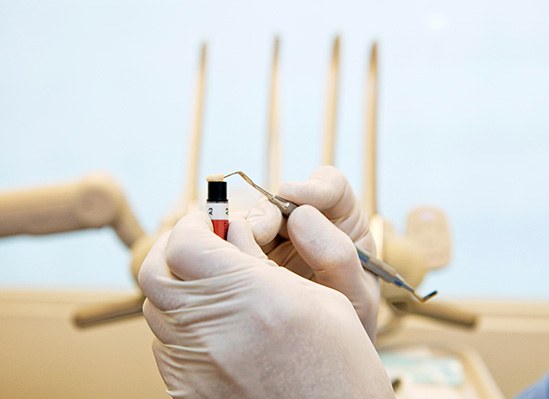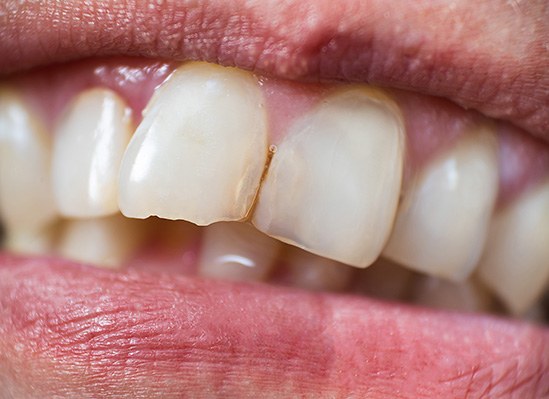Dental Bonding Colorado Springs
Get a Touch-Up for Your Teeth
Even if your smile has flaws, maybe they aren't especially large or glaring. They could be rather small and subtle instead, to the point you'd only notice them with a close look. In the latter case, you'd do well to consider dental bonding in Colorado Springs. This treatment from Dr. Waite can quickly touch up your grin, hiding its slight faults from view. To learn more about it, just keep reading or book a consultation with our office soon.
Why Choose Aspen Ridge Dental Care for Dental Bonding?
- A Dentist with Decades of Experience
- Entire Treatment Done in Two Visits (or Less)
- An Accessible In-House Savings Plan
What is Dental Bonding?

Dental bonding is one of the least invasive ways to address your grin’s minor flaws. By applying tooth-colored resin to affected teeth, it hides small chips, cracks, stains, and more. The treatment’s results also blend seamlessly once the resin fully hardens. In doing so, dental bonding ensures your grin looks nicer for at least a few years (given proper care).
Since it’s a fairly simple procedure, dental bonding only takes one or two visits. The process starts by cleaning the relevant teeth and removing their decayed areas. When that’s done, the dental team will apply (and sculpt) tooth-colored resin to your smile and harden it with a curing light. We then conclude treatment by polishing your teeth and making some last-minute changes.
Who is a Good Candidate for Dental Bonding?

In all honesty, nearly any adult can qualify for dental bonding. It has very few requirements for patients to meet; you just need to have decent oral health. That said, note that the bonding procedure isn’t ideal at “covering up” very noticeable smile flaws – deep stains, large chips, wide cracks, etc. You may want to consider other cosmetic options for such issues.
Given the points above, the best candidates for dental bonding usually have one (or more) of the following:
- Light to Moderate Tooth Stains
- Slightly-Gapped Teeth
- Enamel with Small Chips or Cracks
- Teeth That Seem Short or “Stubby”
- Oddly-Shaped or Malformed Teeth
Of course, only a certified dentist will know whether dental bonding could help you. That means you should consult Dr. Waite before making any treatment decisions.
The Benefits of Dental Bonding

While it works best on “minor” flaws, dental bonding has some pretty big benefits. These include:
- Versatile Results – Tooth-colored resin can cover the whole front of teeth, so dental bonding is highly versatile. You can trust it to hide small stains, chips, cracks, and more.
- Non-Invasive Care – Dental bonding is a very gentle procedure, as it doesn’t alter your tooth structure. Indeed, the entire treatment is pain-free and only takes an hour or so.
- Easy Maintenance – Dental bonding has easier-to-maintain results than other cosmetic dental options. Due to how it works, good oral hygiene can preserve its effects for 5-10 years.
- High Cost-Effectiveness – Even as it has seamless results, dental bonding costs less than other aesthetic dental options. The procedure is thus very cost-effective!
